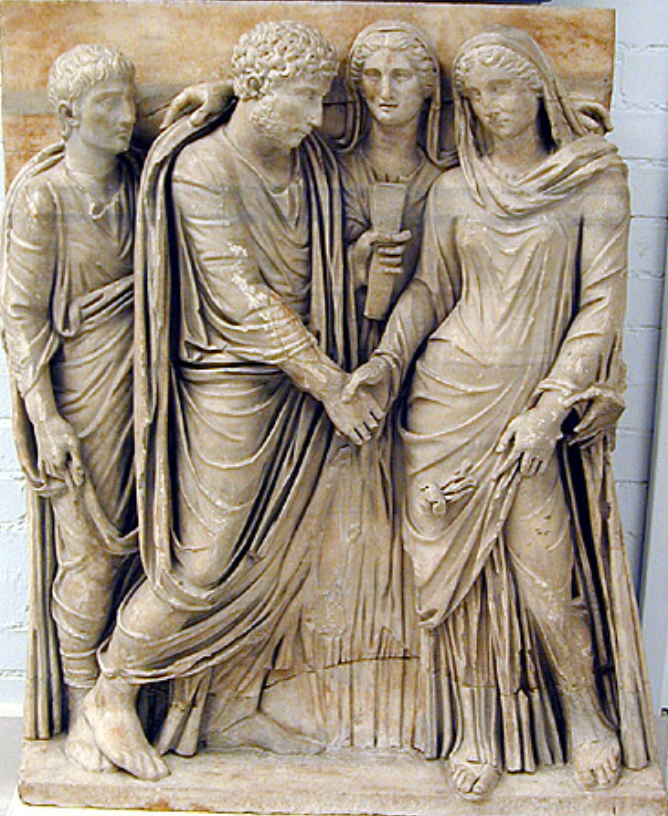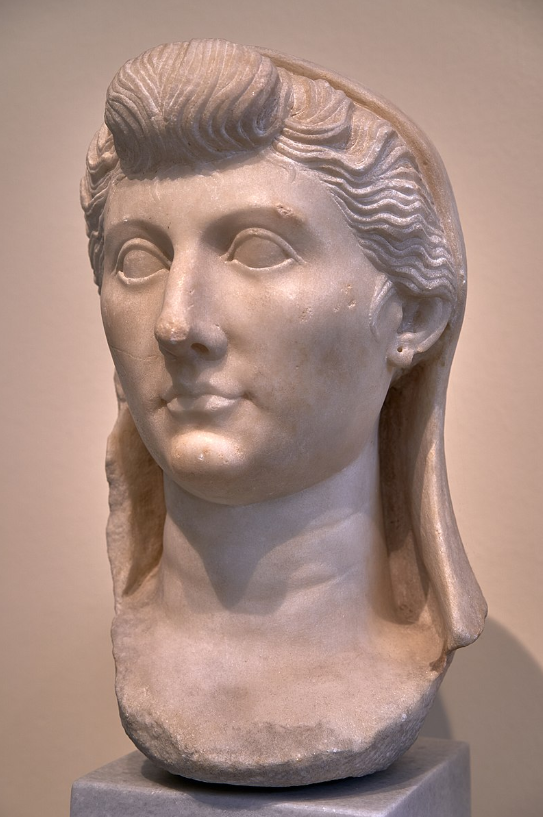Rome’s Totalitarian Father
“He found the whole state exhausted by internal dissensions and established over it a personal regime known as the Principate.” – Tacitus, Annals 1.1
The great Roman historian and annalist, Cornelius Tacitus describes the regime of the first Emperor, Augustus, as a dominatio (tyranny). When Augustus had secured his dominance over the Roman world after Actium in 31 BCE, he knew that in order to be safe, he could not make the same mistakes as his adoptive father, Julius Caesar, and that he had to change the very culture of Rome; many of these changes would contribute to the characterisation of his reign as a tyranny.
Contemporary writers had characterised the fall of the Republic as being the result of a severe moral decline. This certainly has some truth to it as the pursuit of wealth and status resulting from Rome’s expansion had created an unresponsive elite and left the vast majority of common people struggling in poverty. This situation was ultimately exploited by the warlords and so-called ‘great men’ including Caesar to advance their own power.
The resulting cycle of violence had to come to an end, and it was Augustus who would establish a new system which would end the bloodshed of the past century. However, Julius Caesar’s death had shown that an individual with blatant overwhelming power would not be tolerated, and so Augustus masked his power behind the façade of ‘Restoring the Republic’; and to do so would require the reversal of the supposed moral decline.
Political stability depended on moral stability.
Relief showing a Roman marriage ceremony.
Thus, Augustus’s regime would be characterised by a wide range of moral and social reforms as a part of his attempt to create a cultural uniformity. These morals were painted as timeless by Augustus and his propaganda poets as he wished to link the very idea of being Roman with the morals he wanted to enforce.
Many Augustan reforms would go beyond the scope of public life and would seek to police how Romans behaved in their private lives and within their own homes. In 18 BCE, the Leges Juliae de maritandis ordinibus et de adulteriis coercendis (The Julian Laws on the Marriage of the Orders an on Adultery) were passed, with some amendments to these laws being made by the Lex Papia Poppaea in 9 BCE.
These laws required all Roman citizens to be married and even required prompt remarriage after the death of a spouse which was a huge cultural change. Prior to this, a woman who had only been married and loyal to their first husband for life would be called a univiri and would be held in extremely high regard.
Failure to comply with these laws would result in a curtailment of inheritance rights and a reduction in societal inclusion. Unmarried adults could not inherit, and although this was later relaxed to allow widowers to do so, such people still lost half of their intended inheritance. Additionally, the unmarried would face being shunned from public events including the circus and theatre which was a severe punishment due to the popularity of these events and the importance of them in Roman life.
The traditional values of marriage were also protected by the laws on adultery. Adultery was brought into the realm of public law: for an adulterer the punishment would be banishment or the loss of half their fortune, and for an adulteress, the penalty was payment of half her dowry and the loss of a third of their fortune. It is clear that Augustus felt it vital to encourage the traditional institution of marriage and he felt that stability at the family level would also ensure stability in politics.
Laws on procreation were just as important in this programme of moral reform. However, these laws were promoted with rewards rather than the threat of punishment. Women who had mothered three children would gain ‘The Right of Three Children’. This right would waive the requirement for women to use a male representative to engage in legal activity, and such a right was also extended to freedwomen who had four children. Such a reward would have been a good incentive and may have worked to offset the financial burden of having three children. Men pursuing legal office would also be able to enter office a year early for every child they had, and thus success in public life become linked closely with the image of a father.
These laws show the Augustan extension of imperial power into the family and private lives of citizens. One key marker of a totalitarian state is the exercising of authority by the government over the family and sexual behaviour. Therefore, we can start to characterise the Augustan state as a totalitarian state. He wanted his authority to be present in all spheres of life, down to the familial level and in such small-scale acts as sex and procreation.
Alongside these laws, Augustus wanted Roman families to model themselves on the imperial family. Issues of gender and imperial power become inexplicably connected. In 2 BCE, Augustus was granted the title of Pater Patriae (Father of the Fatherland).
As this father figure, he passed laws to supervise the behaviour of men and women and, in doing so, hoped the patresfamilias of Rome would imitate this behaviour by enforcing these moral reforms and encouraging traditional morals.
Portrait head of the empress Livia (58 B.C. – A.D. 29), wife of the emperor Augustus.
Additionally, Livia was thrust into the spotlight, with more portraits of her being found than any other Roman woman. Livia is depicted as a model for Roman women to follow: she is subordinate to male authority, familial, and sexually disciplined. In his Res Gestae, Augustus discusses how Romans imitated him and such talk is an attempt to control how a family dynamic should work: the performance of gender roles becomes a performance of loyalty to the state and to Augustus.
Discussion of imitation is placed amongst a discussion of a booming population and so a flourishing society is connected with imitating the imperial family. In the family model promoted by Augustus, a paterfamilias should grow their family, should have the ultimate authority, and should have their example followed and in turn, the paterfamilias should model his behaviour on Augustus. Meanwhile, women should follow the example of Livia and be subordinate to their husbands, be sexually disciplined, and be familial if they want their family to enjoy success.
Such an oppressive extension of power into the family through moral laws, and an attempt to shape the dynamics of individual families through the encouragement of imitation was an attempt to prevent dissensus at the lowest level, and to prevent the forming of new ideas that could threaten the position of Augustus. Once again, this demonstrates the totalitarian nature of Augustan Rome, as a society without dissensus is one where no true debate or politics can occur.
Despite some opposition, mostly in the form of protest and Augustus being subsequently forced to abandon certain elements of his laws, most noticeably the provision banning unmarried adults from the theatre and games, Augustus was able to extend imperial authority into the private lives of citizens and to project his power onto the body autonomy of Romans.
He dictated that women should have children, that sexual exploration should be limited, and that a traditional patriarchal family was best for Rome. For at least three centuries, these Augustan laws remained entrenched in the way Roman society worked, and the legislating of private lives and sexual behaviour, that labelled Augustus as a totalitarian leader, are threats that still endure to this day.
A supposed moral decline was reversed by the extension of state power over the individual and gender roles became a way to perform loyalty to the state. The reign of Augustus undoubtedly demonstrates the link between gender, autonomy of the individual, and power.



